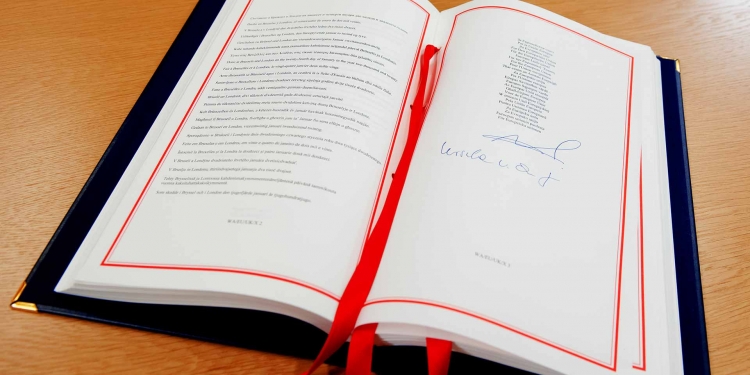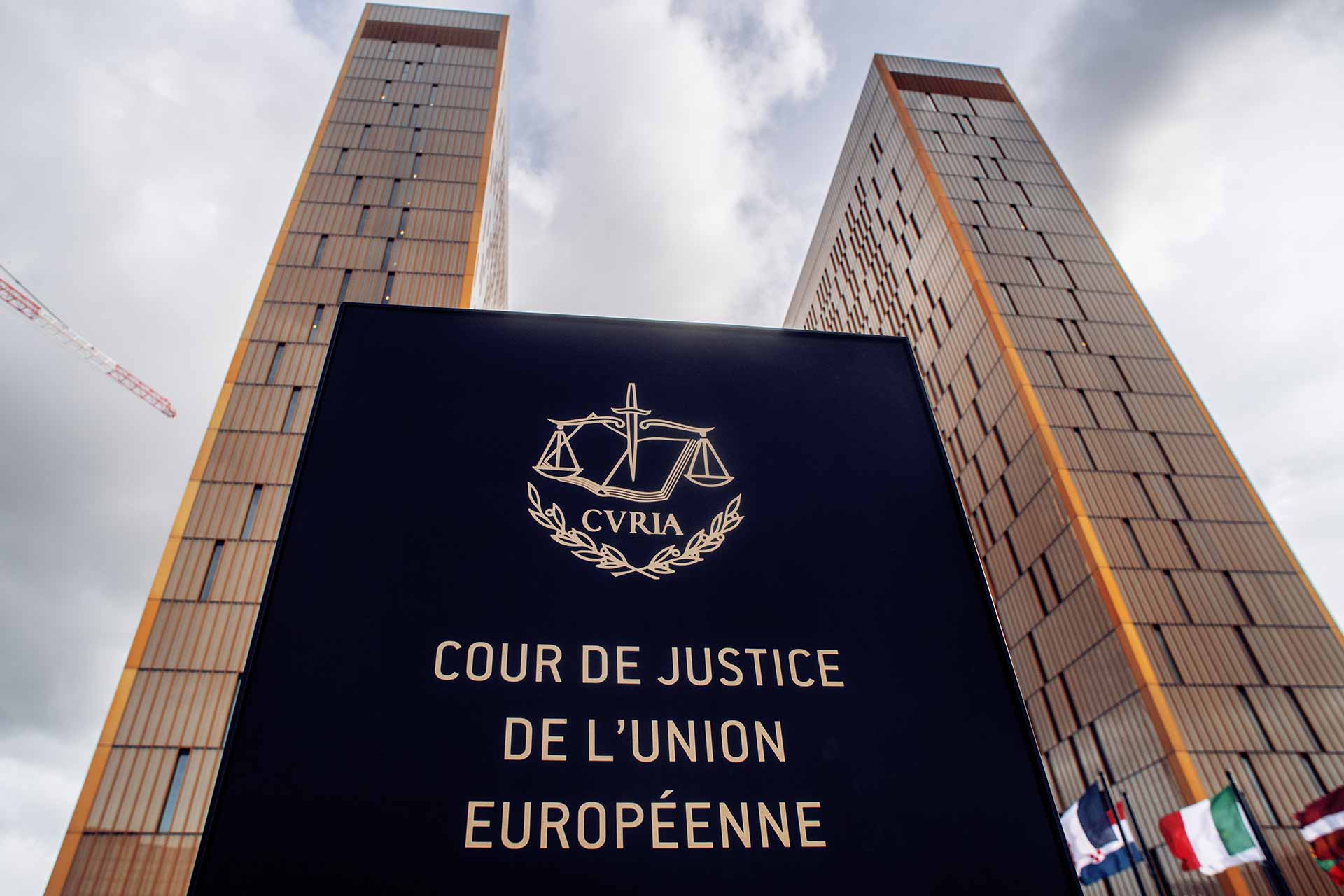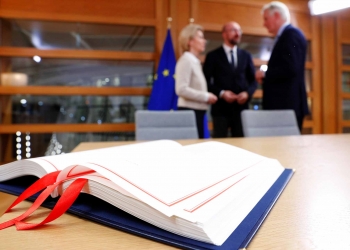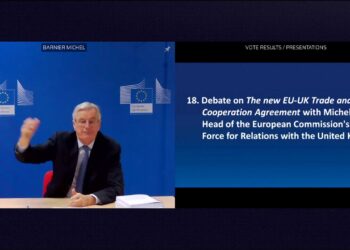EU sends letter of formal notice to the United Kingdom for breach of its obligations for the Brexit Withdrawal Agreement. The European Commission has today sent the United Kingdom a letter of formal notice for breaching its obligations under the Withdrawal Agreement. This marks the beginning of a formal infringement process against the United Kingdom. It has one month to reply to today’s letter.
The Withdrawal Agreement was ratified by both the EU and the UK. It entered into force on 1 February 2020 and has legal effects under international law.
We had invited our British friends to remove the problematic parts of their draft internal market bill, by the end of September.
Ursula von der Leyen
The UK has until the end of this month to submit its observations to the letter of formal notice. After examining these observations, or if no observations have been submitted, the Commission may, if appropriate, decide to issue a Reasoned Opinion.
Article 5 of the Withdrawal Agreement
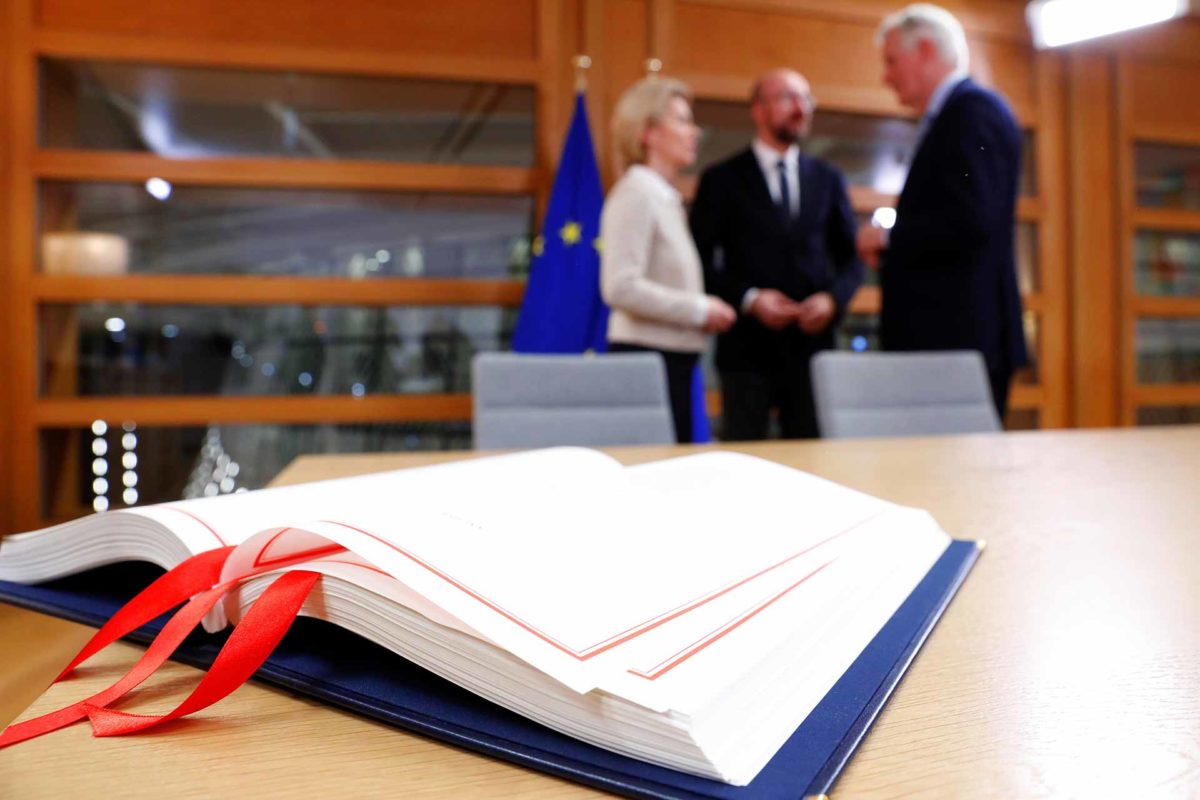
Article 5 of the Withdrawal Agreement states that the European Union and the United Kingdom must take all appropriate measures to ensure the fulfilment of the obligations arising from the Withdrawal Agreement, and that they must refrain from any measures which could jeopardise the attainment of those objectives. Both parties are bound by the obligation to cooperate in good faith in carrying out the tasks stemming from the Withdrawal Agreement.
UK stands by ‘illegal’ bill as Brexit talks enter crucial phase
On 9 September 2020, the UK government tabled a Bill (‘United Kingdom Internal Market Bill’) that, if adopted, would flagrantly violate the Protocol on Ireland / Northern Ireland, as it would allow the UK authorities to disregard the legal effect of the Protocol’s substantive provisions under the Withdrawal Agreement. Representatives of the UK government have acknowledged this violation, stating that its purpose was to allow it to depart in a permanent way from the obligations stemming from the Protocol. The UK government has failed to withdraw the contentious parts of the Bill, despite requests by the European Union.
Obligation to act in Good Faith
By doing so, the UK has breached its obligation to act in good faith, as set out in Article 5 of the Withdrawal Agreement. Furthermore, it has launched a process, which – if the Bill is adopted – would impede the implementation of the Withdrawal Agreement. As a result, the Commission has launched infringement proceedings today in line with the provisions of the Withdrawal Agreement.
Following the publication by the UK government of the draft ‘United Kingdom Internal Market Bill’ on 9 September 2020, Vice-President Maroš Šefčovič called for an extraordinary meeting of the EU-UK Joint Committee to request the UK government to elaborate on its intentions and to respond to the EU’s serious concerns. The meeting took place in London on 10 September between Michael Gove, Chancellor of the Duchy of Lancaster, and Vice-President Maroš Šefčovič.
EU’s Sefcovic: UK position on Brexit far apart from what EU can accept at a Withdrawal Agreement
At the meeting, Vice-President Maroš Šefčovič stated that if the Bill were to be adopted, it would constitute an extremely serious violation of the Withdrawal Agreement and of international law. He called on the UK government to withdraw these measures from the draft Bill in the shortest time possible and in any case by the end of the month of September.
At the third ordinary meeting of the Joint Committee on 28 September 2020, Vice-President Maroš Šefčovič again called on the UK government to withdraw the contentious measures from the bill. The UK government on this occasion confirmed its intention to go ahead with the draft legislation.
EU warned it will take UK government to court over Brexit bill
The Brexit Withdrawal Agreement provides that during the transition period, the Court of Justice of the European Union has jurisdiction and the Commission has the powers conferred upon it by Union law in relation to the United Kingdom, also as regards the interpretation and application of that Agreement.

